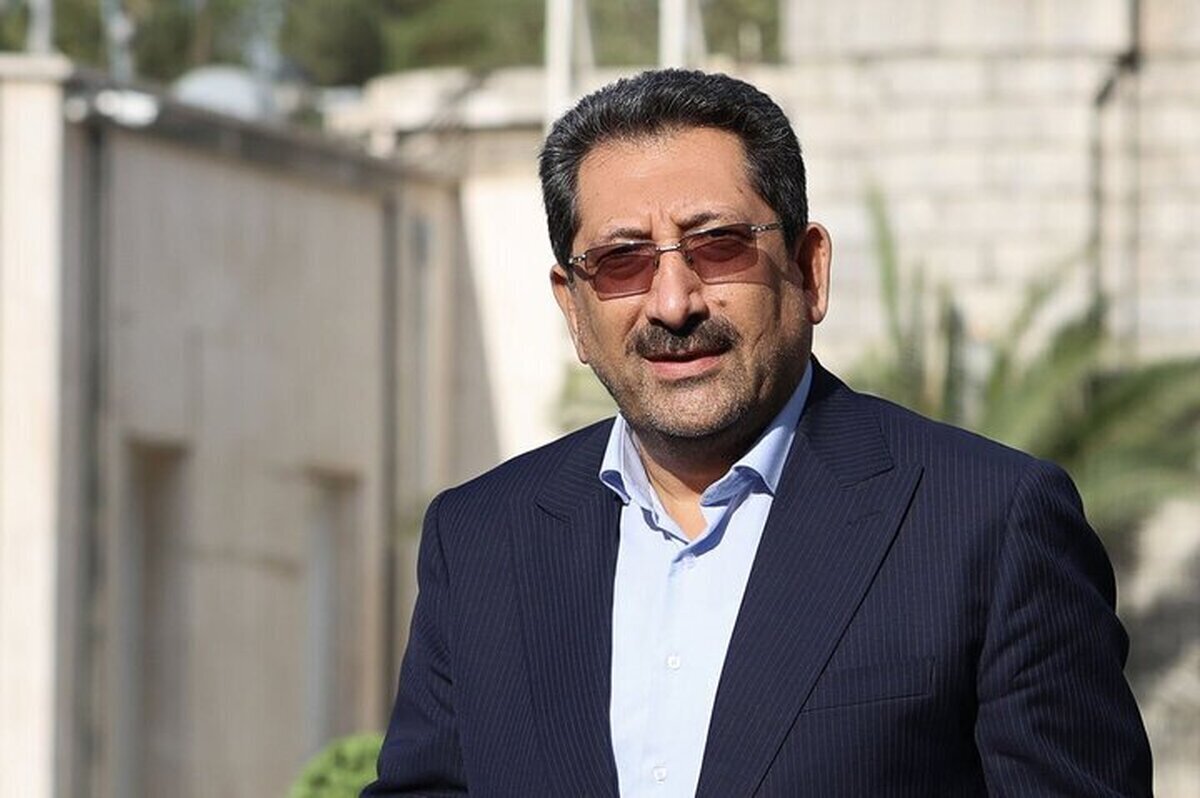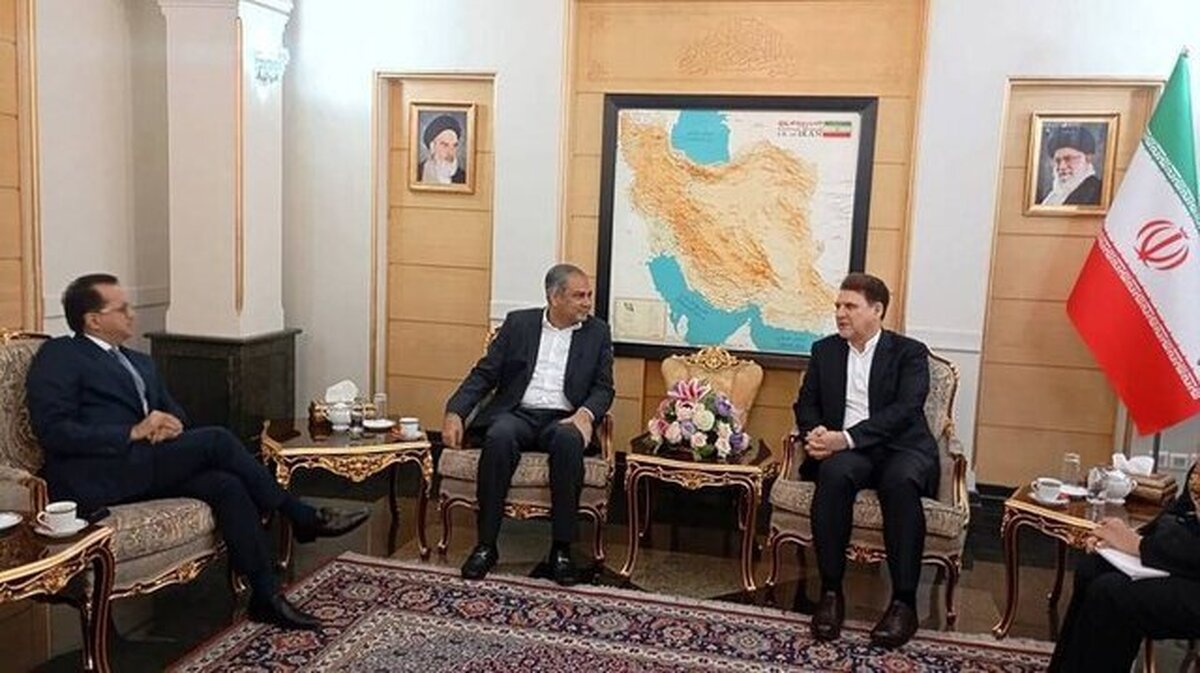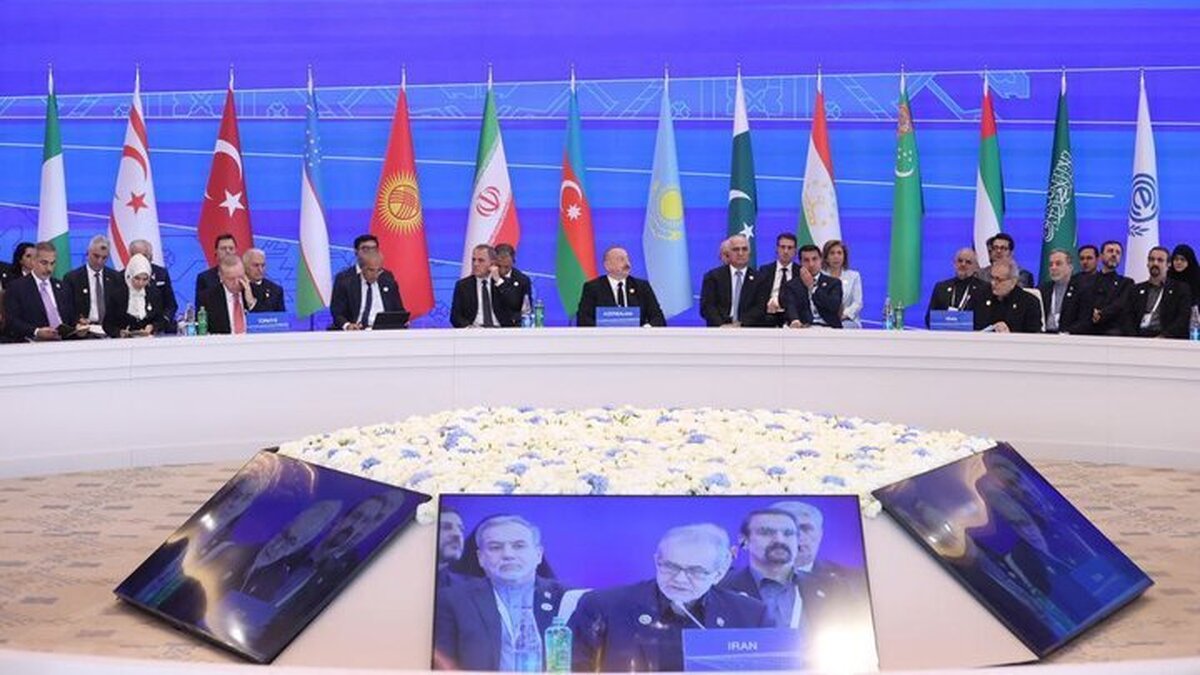
Iran's Trade With ECO Soars 44% to $10.4 Billion in 8 Months
EghtesadOnline: Trade between Iran and Economic Cooperation Organization’s nine members stood at 21.78 million tons worth $10.45 billion in the current fiscal year’s first eight months (March 21-Nov. 21), registering a 34% and 44% year-on-year growth in weight and value respectively, according to Rouhollah Latifi, spokesman of the Islamic Republic of Iran Customs Administration.
Iran’s exports stood at 18.63 million tons worth $6.82 billion, up 46% and 54% in weight and value respectively YOY, ILNA reported.
Turkey with 11.35 million tons (up 123% YOY) worth $3.77 billion (up 128% YOY), Afghanistan with 3.06 million tons (down 35%) worth $1.27 billion (down 16%) and Pakistan with 1.87 million tons (up 22%) worth $764.39 million (up 28%) were the top three export destinations in the period.
They were followed by Azerbaijan with 553,515 tons (down 22%) worth $335.84 million (down 7%), Uzbekistan with 514,022 tons (up 279%) worth $274.22 million (up 223%), Turkmenistan with 894,847 tons (up 173%) worth $207.02 million (up 168%), Kazakhstan with 311,866 tons (up 79%) worth 112.75 million (up 24%), Kyrgyzstan with 28,440 tons (up 184%) worth 51.83 million (up 164%) and Tajikistan with 54,612 tons (up 283%) worth 38.82 million (up 232%).
Imports from ECO members hit 3.15 million tons worth $3.62 billion, registering a 10% decline in weight but a 28% growth in value YOY.
Turkey was the main exporter to Iran with 2.72 million tons (down 15%) worth $3.24 billion (up 24%). It was followed by Pakistan with 194,710 tons (up 62%) worth $182.08 million (up 54%), Uzbekistan with 46,095 tons (up 5%) worth 86.85 million (up 55%), Kazakhstan with 117,517 tons (up 81%) worth 37.62 million (up 54%), Azerbaijan with 17,808 tons (down 9%) worth 29.19 million (up 87%), Turkmenistan 31,266 tons worth $22.96 million, Afghanistan with 10,592 tons (up 181%) worth 11.35 million (up 360%), Tajikistan with 3,693 tons (up 43%) worth 8.87 million (up 87%) and Kyrgyzstan with 3,348 tons (up 56%) worth $1.86 million (up 53%).
Iran traded a total of 110.3 million tons of goods (excluding crude oil) worth $63.1 billion during the eight months to Nov. 21, registering a 43.5% and 40% year-on-year growth in weight and value respectively, according to Mehdi Mirasharfi, the head of the Islamic Republic of Iran Customs Administration.
Exports stood at 83.7 million tons worth $31.1 billion, 10.5% and 42% more in terms of weight and value respectively YOY, IRNA reported.
Petrochemical exports with 39.8 million tons worth $13.3 billion had the biggest share in exports, accounting for 47% of total weight and 43% of total value of exports.
China with 19.3 million tons worth $9.1 billion was Iran’s biggest export destination followed by Iraq with 21.6 million tons worth $6.1 billion. Turkey, the UAE and Afghanistan came next.
Imports stood at 26.5 million tons worth $32 billion, registering 38% and 21% increase in weight and value respectively.
The biggest exporter to Iran was the UAE with 8 million tons worth $10.1 billion followed by China with 2.2 million tons worth $7.2 billion. Turkey, Germany and Switzerland came next.
Misashrafi noted that 8.1 million tons of goods were transited through Iran during the period under review, registering an 80% year-on-year rise.
“The transit volume during the eight months of the current year is more than that in the whole fiscal 2020-21 or fiscal 2019-20,” he added.
Essential goods with 20.3 million tons worth $12.4 billion had the biggest share in imports, accounting for 75% of total weight and 38% of total value of imports.
Also known as necessity or basic goods, essential goods are products consumers will buy, regardless of changes in income levels.
The imported essential goods mainly include wheat, barley, oilseeds, edible vegetable oils, soymeal, corn and pharmaceuticals.
The IRICA chief noted that 17.8 million tons worth $9.9 billion of imports during the period were purchased at subsidized rates.
Iran and ECO member states traded a total of 23.73 million tons of goods worth $11.71 billion in the last Iranian year (March 2020-21), with Iran’s exports standing at 18.42 million tons worth $6.89 billion as imports hovered around 5.31 million tons worth $4.82 billion.
ECO’s ITI Road Corridor Activated
A ceremony was held on October 8 at Murat Bey Customs Post in Istanbul to mark the arrival of the first two of Pakistan’s National Logistics Company trucks carrying goods from Pakistan to Turkey, via Iran, under the Transports Internationaux Routiers convention.
The NLC trucks departed from Karachi on Sept. 28 and reached Istanbul on Oct. 7 covering a distance of 5,300 kilometers, Pakistan Observer reported.
Senior officials of the Turkish Ministry of Transport and Infrastructure, Ministry of Trade, Chamber of Commerce and Commodity Exchanges of Turkey, International Road Transport Union, ECO Secretariat, Iran’s Ministry of Roads and Urban Development, NLC, members and representatives of the Turkish private sector related to transport and Pakistan’s Ambassador to Turkey Muhammad Syrus Qazi, accompanied by representatives of Pakistan Embassy and Consulate, participated in the ceremony.
Umberto de Pretto, secretary-general of IRU, based in Geneva, also attended this ceremony.
The participants hailed the development as a vital step in promoting connectivity and enhancing trade between Pakistan and Turkey.
Ambassador Syrus Qazi highlighted the government of Pakistan’s focus on geo-economics and how regional connectivity was crucial in this regard.
He hailed the trial run of NLC trucks as a historic step that will strengthen road connectivity between Pakistan and Turkey, and also help promote bilateral trade.
The ambassador noted that operationalization of this road link will help reduce the cost and time for transportation. Reviving the Islamabad-Tehran-Istanbul road transport corridor will generate revenue, boost trade and increase economic cooperation among ECO member states.
After the initial successful run, NLC intends to increase and regularize transport of goods between Pakistan and Turkey, helping to bring the two countries closer.
Javad Hedayati, director general of Transit Affairs Bureau of Road Maintenance and Transportation Organization of Iran, says the ITI Corridor can easily replace the Suez Canal route.
“ECO’s ITI transportation corridor holds huge potential; for one thing, transportation time between Istanbul and Pakistan is reduced to 10-12 days from 25-30 days [through the Suez Canal]. Moreover, the corridor reduces transportation costs by 30%,” he was quoted as saying by the news portal of the Ministry of Roads and Urban Development.
According to the official, transportation costs rose dramatically in the wake of Covid-19 pandemic.
“This has made road freight transport even more cost-effective. Today, there is a great opportunity for us to use our transit corridors, ITI in particular, to their full potential.”




